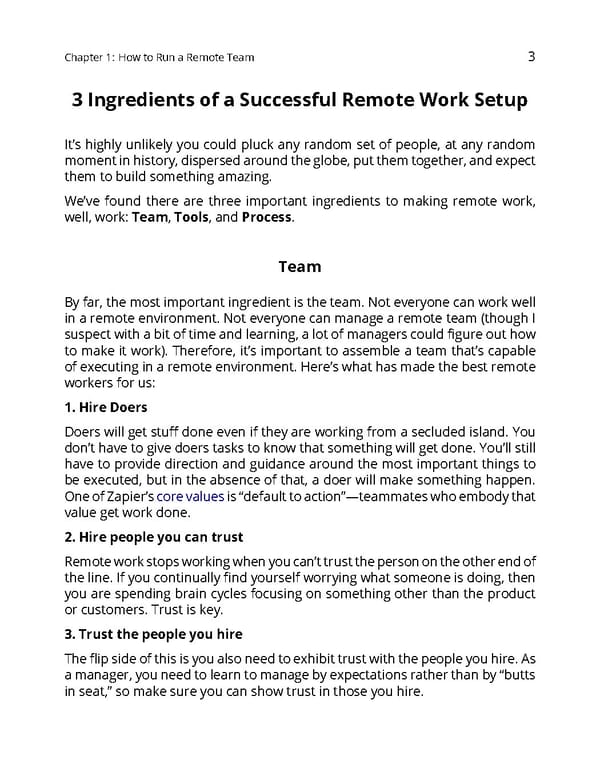Chapter1: HowtoRunaRemoteTeam 3 3IngredientsofaSuccessfulRemoteWorkSetup It’s highly unlikely you could pluck any random set of people, at any random momentinhistory,dispersedaroundtheglobe,putthemtogether,andexpect themtobuildsomethingamazing. We’ve found there are three important ingredients to making remote work, well, work: Team, Tools, and Process. Team Byfar, the most important ingredient is the team. Not everyone can work well in a remote environment. Not everyone can manage a remote team (though I suspectwithabitoftimeandlearning,alotofmanagerscouldfigureouthow to make it work). Therefore, it’s important to assemble a team that’s capable of executing in a remote environment. Here’s what has made the best remote workersforus: 1. Hire Doers Doers will get stuff done even if they are working from a secluded island. You don’t have to give doers tasks to know that something will get done. You’ll still have to provide direction and guidance around the most important things to be executed, but in the absence of that, a doer will make something happen. OneofZapier’scorevaluesis“defaulttoaction”—teammateswhoembodythat value get work done. 2. Hire people you can trust Remoteworkstopsworkingwhenyoucan’ttrustthepersonontheotherendof the line. If you continually find yourself worrying what someone is doing, then you are spending brain cycles focusing on something other than the product or customers. Trust is key. 3. Trust the people you hire Theflipsideofthisisyoualsoneedtoexhibittrustwiththepeopleyouhire.As amanager,youneedtolearntomanagebyexpectationsratherthanby“butts in seat,” so make sure you can show trust in those you hire.
 The Ultimate Guide to Remote Work Page 6 Page 8
The Ultimate Guide to Remote Work Page 6 Page 8